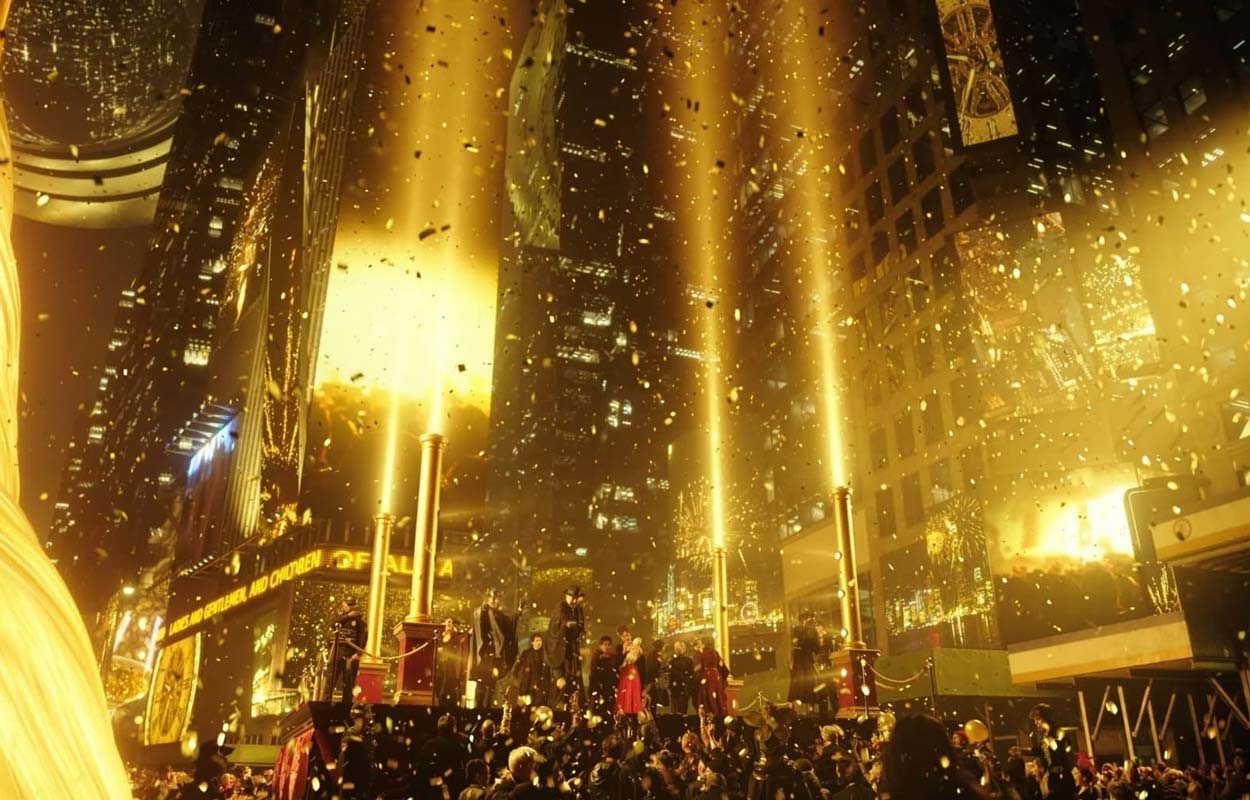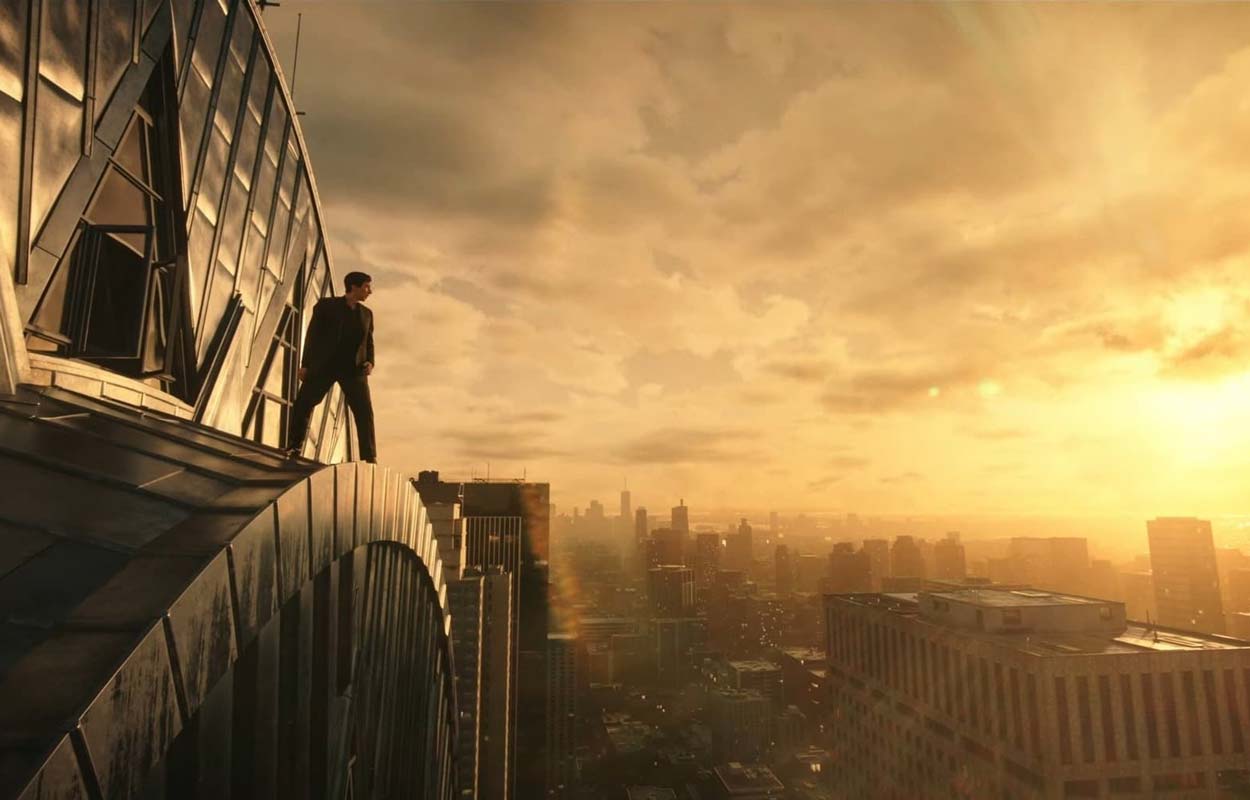
Review: Megalopolis (2024) - Francis Ford Coppola's confusing epic
Francis Ford Coppola has the world's attention with his new epic "Megalopolis". Joonatan Itkonen shares his thoughts directly from the Cannes Film Festival.
How do you talk about something that’s the sincere manifestation of forty years of obsession? Who even gets to say whether or not it was worthwhile? If the booing at the end of the press screening at Cannes was anything to go by, many have already made their judgment on Francis Ford Coppola’s confusing epic.
I’m of two minds. Yes, it’s barely coherent. There were multiple times that I found it to be the most expensive Neil Breen movie ever made. It’s too long by at least a good half hour, and to call its tone anything but messy would be a lie. At times, it feels like Coppola’s pulling some elaborate joke on the audience that he refuses to clue them in on. There’s vaudevillian showmanship, and then there’s just being a showboat.

A spellbinding first hour
Despite this, for the first hour, I was absolutely spellbound by Coppola’s fable. In that riveting first act, his bravado works. It’s like a reinvention of King Vidor, F.W. Murnau, and D. W. Griffith lensed through the vision of Baz Luhrmann and Julie Taymor.
The story is as chaotic and grandiose as you’d expect. In an undefined timeline that could be the future, the past, or some amalgamation of the two, a great city that’s both New York and Rome is on the verge of collapse. It has grown too large, too complacent, and far too decadent. Here, everyone lives for the hedonistic rush of the now, uncaring of the future.
As the haves and the have-nots clash, Mayor Cicero (Giancarlo Esposito) desperately tries to hold onto power. His grasp on the city is lessened by the arrival of an upstart architect, Caesar (Adam Driver), who promises a brighter future with the help of "Megalon", a powerful resource he devised. Old money flails, hungry socialites prowl for weak outliers, and at the heart of it all, the city suffers. An ancient satellite threatens to crash down at any minute. There’s no food. The power keeps going out. How will society survive when the people no longer believe in it?
Late-stage capitalism and the rise of facism
Megalopolis is part fable, part elaborate metaphor. Coppola’s wild vision talks of late-stage capitalism, the rise of fascism, history repeating itself, the loss of culture, and our inability to connect with others. How many of these themes tie together, I don’t know. Sometimes, it feels like taking part in six different conversations, each of which has gone on for decades now. Some of Coppola’s ideals are dated by today’s standards, others feel quaint to the point of childishness. Yet you can’t fault him for wearing his heart on his sleeve. At no point does it feel like the work of anyone else but Coppola’s. That alone makes Megalopolis a worthwhile endeavour. A unique, artist-driven spectacle, for good or ill.
To tell his story, Coppola has gathered together an eclectic castW and some of it pays off in spades. Aubrey Plaza has a blast in a role that plays to her oddball strengths. Even when the film itself is going in a completely opposite direction. Adam Driver is a saint for giving it his all, and he’s the one constantly great thing in the picture. Nathalie Emmanuel does so much with so little as well. You believe her conflict, even if the film doesn’t. They’re not the problem.
But casting Shia Labeouf as a try-hard thug just feels like typecasting at this point. Dustin Hoffman doesn’t seem to realize the camera is on. Jon Voight is playing six different versions of his part, and Coppola never nails down which of these he wants to stick with. I wonder if some of these issues come from the freewheeling experimental theatre that Adam Driver called the production. Letting actors try things to find the performance. That would explain why some scenes feel so removed from others.

Lacks direction when Fishburne disappears
Elsewhere, Laurence Fishburne plays both the narrator and Driver’s right-hand man. His character is one of the most mysterious parts of the entire film. A Greek Chorus who knows that he’s in a movie. He talks directly to the audience and disappears from the story unexpectedly without any fanfare. When he’s gone, the anchor holding down the loose narrative vanishes, and the film feels adrift.
The second half of the film is Coppola at his most experimental. Time becomes meaningless, slapstick comedy reigns. There’s an assassination attempt involving a gun hidden in the book of architecture. A crossbow is disguised as an erection. Coppola involves himself in a cameo worthy of M. Night Shyamalan.
It’s a wild, irreverent ride. So overblown, bombastic, and unashamed of what it is that it’s bound to put off viewers. At the premiere, I heard strangers mutter “What the fuck” more than once. In the lobby, people kept booing well after the film was over. It was the kind of hysteria you’d imagine Coppola wanted. After all, whatever Megalopolis is — and it is a great many things — it is never boring.
A 120 million dollar gamble
There is something deeply admirable when a film collapses under its own weight this spectacularly. It’s like watching Rome burn. There’s a terrible beauty to it. You can see what they wanted it to be, and for brief moments it succeeds in that vision.
But Coppola’s work is less a mythic city of old and far closer to the myth of Icarus. By the end, it burns its wings and plummets into a fiery death. For a brief moment, it’s spectacular. But in the end, I can’t help but wonder if it was worth it. It’s a 120-million-dollar gamble that is hard to recommend for most people. Film students will sing its praises now, anf others will join a decade from now, quietly re-evaluating it as a misunderstood masterpiece. Others will ignore it, or derisively call it Coppola’s grand failure at the end of his illustrious career.
But Megalopolis isn’t just one of these things. It’s all of them at once. A visionary masterwork, a colossal disaster, a camp comedy, and a political statement run amok. How much of any of these it finally ends up as is a mystery. One that I don’t think we’ll know the answer to for a long time.
Joonatan Itkonen
This review is a guest post; check out Joonatan's site, Toisto.net, for more insightful reading.
